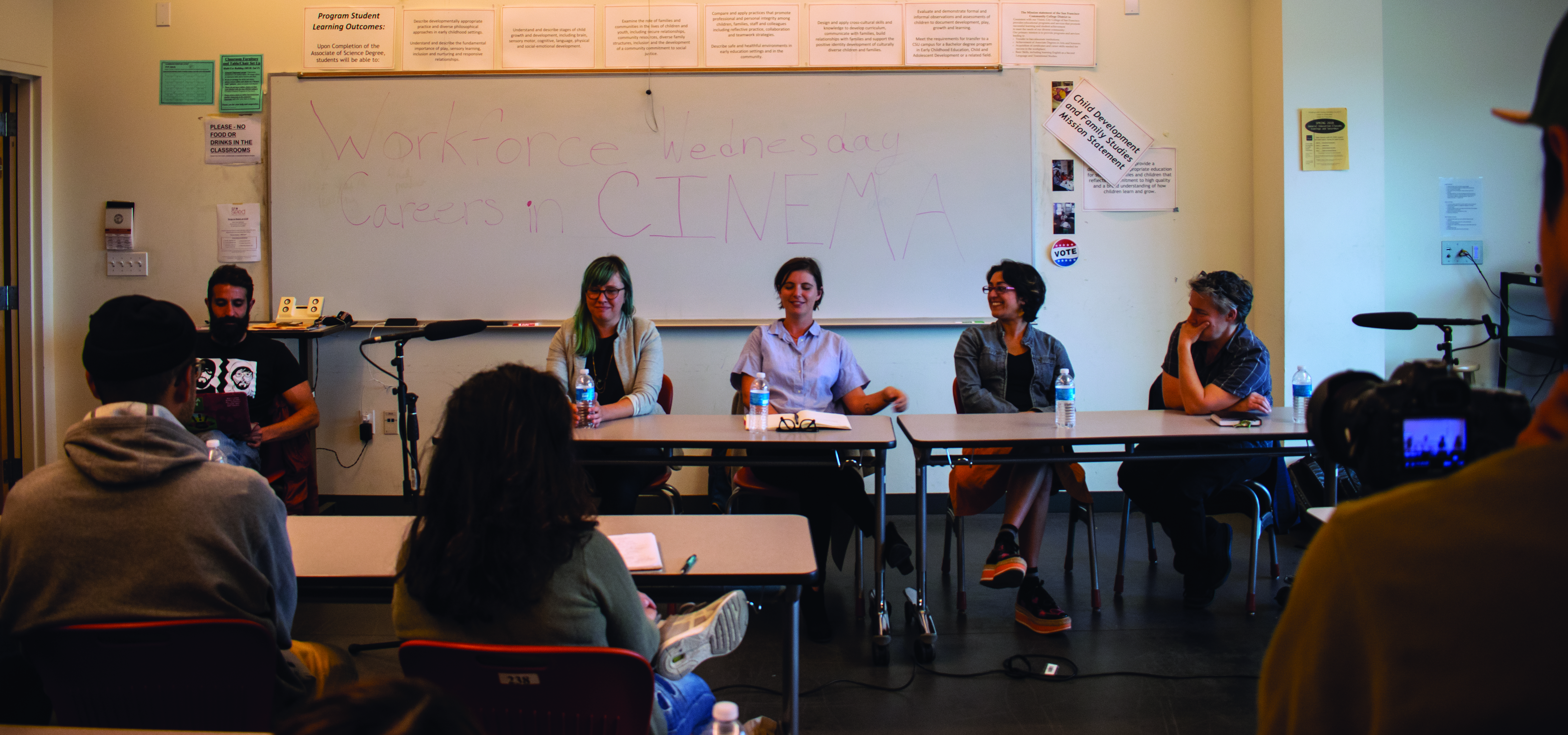All female cinema panel share experience in the industry
By Sarah Berjan
Workforce Wednesday presented their sixth event on Oct. 17, an open panel discussion with four film producers in the Bay Area. The panelists shared their experiences of being producers and women in the film industry.
Arya Zarrinkelk, an employment and training specialist for City College’s Strong Workforce Program, facilitated the event in order to help promote careers in arts, media, entertainment and other creative disciplines.
“This is my first actual immersion into film school, so I find it very humanizing to see all the ethics that goes into the profession like building character rather than having a lot of experience,” said City College student Anthony Francis, who attended the panel. “Since this is my first semester here, I am still trying to feel my way out, still trying to meet people. I find it very reassuring and ensuring that I am still interested in film.”
Panelists included Wendi Jonassen, an active producer and journalist; Yasmin Mawaz Kahn an interactive film producer and artist; Natalie Teter a film producer and media strategists; Nomi Tailsman, an Oscar nominee, award-winning independent filmmaker and new media artist.

To begin the discussion and introduce the panelists, they were questioned about the challenges and pitfalls in the course of their careers.
“I feel like I am still building my career. I began 10 years ago, but I am still hungry, I am still striving and I am still learning,” Jonassen said. “It’s important to remember, as much as it sucks, that unpaid work gets you work. It’s hard to swallow your pride but remember every person in and outside this industry had peaks and valleys.”
The four panelists also discussed gender, racial and age discrimination they face in an industry dominated by white men. According to Teter, the biggest challenge is to combat internalized inferiority and discrimination.
“I get what I call ‘the little lady talk.’ It goes like ‘little lady, do you understand editing?’ Then I remind them that I am at their level,” Jonassen said. “I just need to be a little more authoritative to remind them I am in the industry at their level and they need to speak to me as such.”
In response to questions about discrimination, Tailsman advised “you can always make your own crew.” She also recommended that the audience adopt skill sets that would give an “edge.”
“Being in solidarity with your people, you will find yourself in positions where you are firing or recommending and just remember who your people are and help them fill those positions out,” said Tailsman.
The panelists agreed that communication was a large component of their productions’ sustainability. Producers need to understand how someone listens and how one responds, making the communication process much smoother, according to Khan. A large part of their work in production is also inspired by the voices that are not being heard.
As a San Francisco State University alumna in cinema, communications and ethnic studies, Teter described her college experiences as being very “politicizing” and attributes much of her career trajectory to her experience at SFSU.
“In 2010 there was a bill in Arizona that outlawed Mexican American studies in public schools, inspiring a documentary called ‘Precious Knowledge.’ That was the first time I saw a film that resonated to a larger political context. That was a big ‘aha’ moment for me,” Teter said. “Realizing how films can move you emotionally is a really big part of political struggle and social change.”
